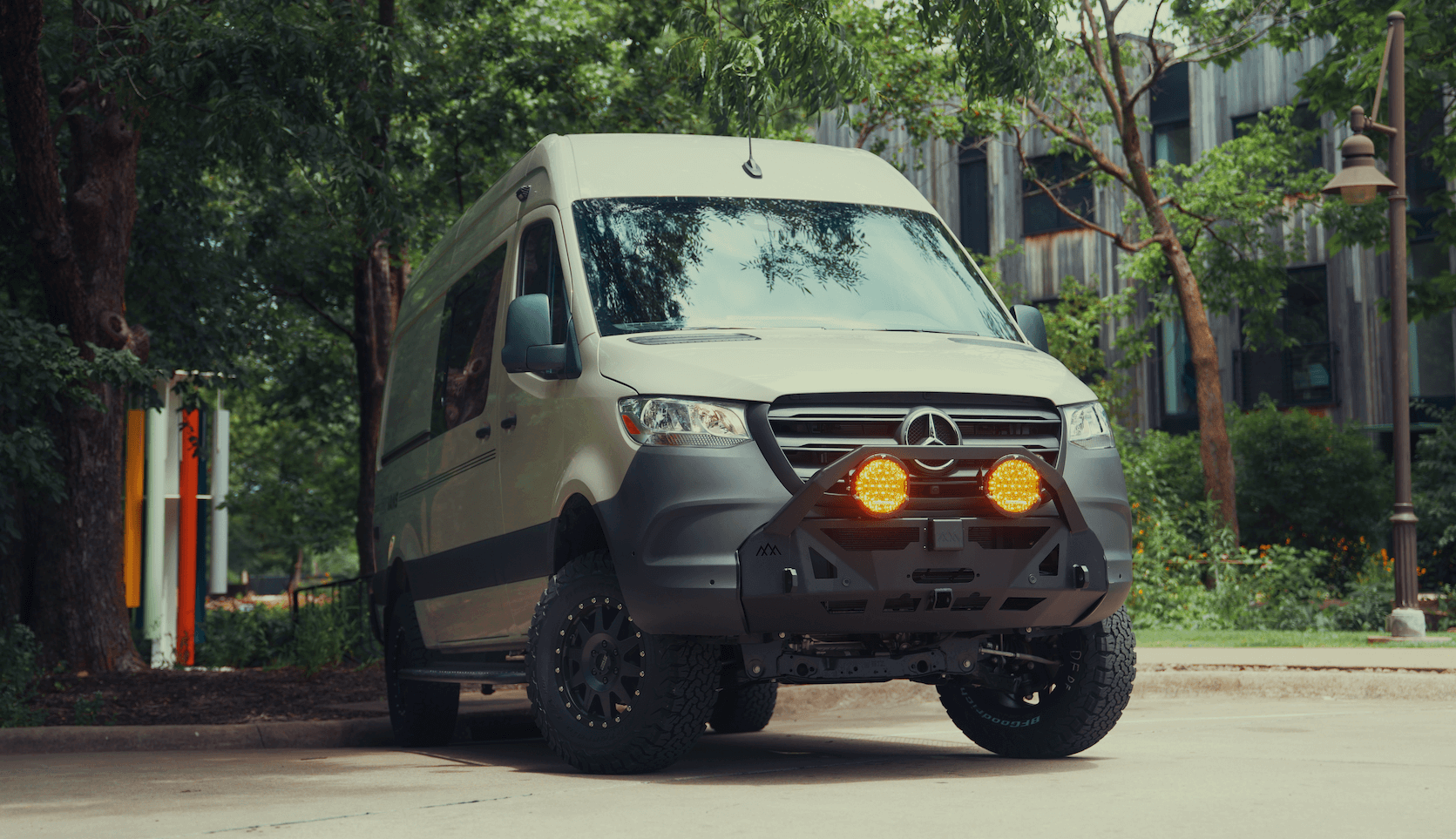Recreational Vans

Off grid camping trades hookups for self reliance. Instead of reserved pads and power poles, you use dispersed sites on public land, designated boondocking areas, or remote pullouts where camping is allowed. The draw is simple. Quiet trailheads at dawn, dark sky stargazing, and the freedom to stay where the view is best.
Success starts with three pillars. Energy to run essentials, water management for drinking and hygiene, and responsible waste handling. Layer in navigation, weather awareness, and land use ethics, and you can settle in confidently. When you plan those pieces, off grid camping feels less like roughing it and more like an intentional reset.
A few essentials make a big difference:
Rules vary by agency and region. Many national forests allow dispersed camping except where posted. Bureau of Land Management areas often permit roadside camping near existing sites. State lands and wildlife areas may have special restrictions or time limits. Always confirm local regulations, fire conditions, and road status before you roll in. Camp on durable surfaces, use established clearings when possible, and keep a low profile to minimize impact.
Your energy system should match your loads and your climate. Daily consumption adds up from refrigeration, fans, lights, device charging, and an inverter when needed. A practical target for many small rigs is 800 to 1500 watt hours per day. Lithium batteries handle deeper cycles with less weight, and solar replenishes quietly while you explore. Shore charging at trailheads is rare, so plan for cloudy days with battery reserve.
Water planning is both capacity and conservation. Track daily use for drinking, cooking, and washing. Many travelers budget 2 to 4 gallons per person per day. Filtration opens new options, from gravity filters to in line carbon and hollow fiber systems. Grey water should be captured and disposed of where permitted, never near streams. For human waste, use vault toilets when available, or a portable toilet system with proper disposal. In fragile backcountry soils, containers are often the right call.
Food safety matters as much off grid as it does at a home kitchen. Keep raw and ready foods separate. Manage refrigerator temperatures and use insulated coolers efficiently. Store scented items in sealed containers to avoid attracting animals. In bear country, follow local storage protocols even at vehicle based camps.
Think of solar as a steady trickle that refills your tank while you play. A 200 to 400 watt array can support a compact fridge, fans, lights, and device charging in sunny seasons. Battery capacity around 100 to 300 amp hours of lithium offers a comfortable cushion for cloudy stretches. Use a shunt based monitor so you know your true state of charge, and wire high draw appliances thoughtfully to avoid voltage drop. Ventilation for any enclosed electrical space is essential.
Navigation is more than a blue dot on a screen. Download offline maps from two different apps and carry paper backups. Check seasonal closures and high water crossings. In the mountains, plan for afternoon storms and on the desert plateau plan for wind. Tell a trusted person where you are going and when you expect to return.
Etiquette keeps wild places wild. Arrive with a clean rig, leave with cleaner ground. Stay within existing site boundaries, keep noise down, and dim lights under a clear sky. Pack out micro trash like food wrappers and foil. Avoid building fire rings and follow local fire advisories. If a site looks overused, give it a break and choose a more resilient area nearby.
Cell coverage fades quickly off the main road. A satellite messenger or a device with SOS and basic texting adds a safety net. If you need high bandwidth internet for remote work, research service maps for satellite options and confirm line of sight at your intended camp. A simple handheld radio helps coordinate vehicles in a convoy and monitor local weather or fire channels. Power these tools from your main battery with fused circuits and keep a small backup power bank in your daypack.
Sprinkle in a few practical habits and your trips get smoother fast. Stage camp before dark so you can spot hazards. Face the sleeping side out of prevailing wind. Chock wheels on uneven ground. Keep water, snacks, and a warm layer in your cab for early starts. If a storm rolls in, secure awnings and evaluate runoff paths to avoid mud traps.
If you are considering a purpose built vehicle for longer stays, explore our overview of adventure platforms on recreational vans. For tailored layouts, power, and storage that match your travel style, see the custom build van process. If you prefer a platform that aligns with traditional financing, review current mainstream vans options.
H3 Conclusion Off grid camping rewards thoughtful preparation. Get your energy math right, manage water and waste with care, respect local rules, and come ready with navigation backups. With those foundations set, the road opens up and the quiet places feel closer than ever.
Ready to optimize your rig for self sufficient travel? Share your goals and routes, and we will design a van or overland upfit that makes power, water, storage, and comfort work together. Start here: recreational vans.
Ready to explore longer without hookups? Tell us how you travel and we will design a purpose built adventure van or overland upfit that makes off grid simple. Fill out the form to start your OZK Customs build plan and get power, water, and storage tailored to your routes.
ADDRESS:
6159 E Huntsville Rd, Fayetteville, AR 72701
PHONE:
(479) 326-9200
EMAIL:
info@ozkvans.com